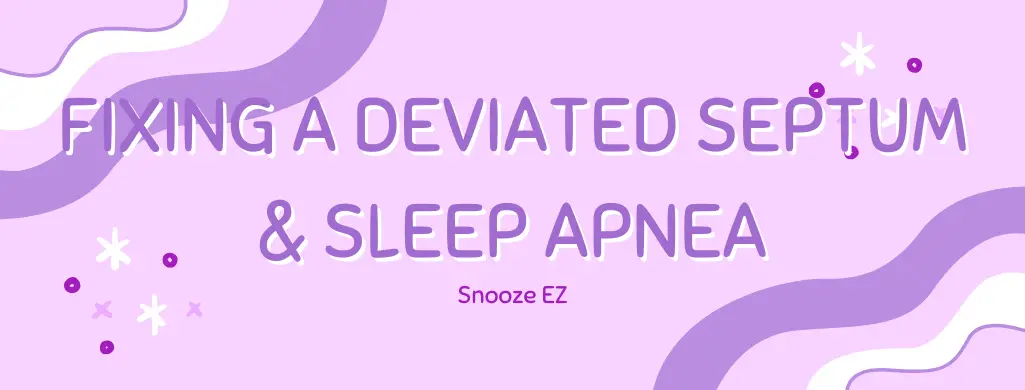Yes, it is possible that fixing a deviated septum can help sleep apnea.
There is ongoing debate among medical professionals about whether fixing a deviated septum can help alleviate sleep apnea symptoms. While some studies suggest that it may provide some relief, others argue that it is not a definitive solution.
In this article, we will explore the relationship between a deviated septum and sleep apnea, and discuss whether fixing it can truly help improve sleep apnea symptoms.
What causes a deviated septum?
A deviated septum occurs when the cartilage and bone that separate your nasal cavity into the left and right side are off-center (leaning to the left or right). An estimated 80% of people likely have some form of deviated septum, however it is often not a serious problem.
Several factors could be the cause of this condition, including: being born with a deviated septum (congenital), being hit in the nose, having an accident, falling, or suffering a nose injury in sports.
Can a deviated septum cause sleep apnea?
Septal deviation has been seen to have a strong connection to sleep apnea, and research indicates that the prevalence of septal deviation is over four times higher than in those without. Septal deviation – commonly referred to as a deviated septum – is an abnormality of the nasal cavity that causes congestion and difficulty breathing through one or both nostrils. This causes a narrowing of the airway which can complicate snoring and potentially cause sleep apnea.
In more severe cases, such as where the deviated septum is blocking air flow, it can lead to an obstruction in sleeping patterns which could eventually turn into sleep apnea. A nine-year study into the connection shows that those with septal deviation were significantly more likely than those in the control group to suffer from this condition. Ultimately, research is beginning to accept that there might be a direct correlation between these two conditions due to their shared risk factors.
Can fixing a deviated septum help sleep apnea?
How is a deviated septum is treated?
When someone has a deviated septum they may be subject to symptoms like headaches, facial pain, nasal congestion, noisy breathing, sinus inflammation (sinusitis), snoring and even sleep apnea. As such it is important to alert your doctor if you experience any of these symptoms regularly. Depending on the severity of the issue, there are treatments available that can help correct this issue.
Surgery might be necessary in some cases; however milder cases may respond well to nasal sprays containing a steroidal anti-inflammatory as well as medications for managing allergies and other issues related to sinus congestion. In addition lifestyle changes such as avoiding smoking and reducing alcohol consumption can also help alleviate many of the symptoms associated with a deviated septum.
Conclusion
When it comes to sleep apnea, there is no clear answer as to whether or not fixing a deviated septum will help alleviate the disorder. Obstructive sleep apnea is caused by a blocking or narrowing of the upper airway, which can be due to different factors such as enlarged tonsils or tongue, obesity, and deviated septum.
Treatment for sleep apnea must be tailored to an individual’s condition and cause, and no one solution will work for everyone. A qualified medical professional should be consulted for the best advice on treating sleep apnea.


